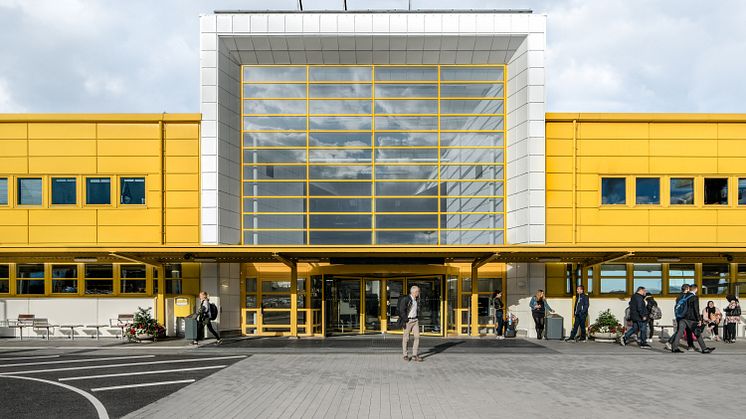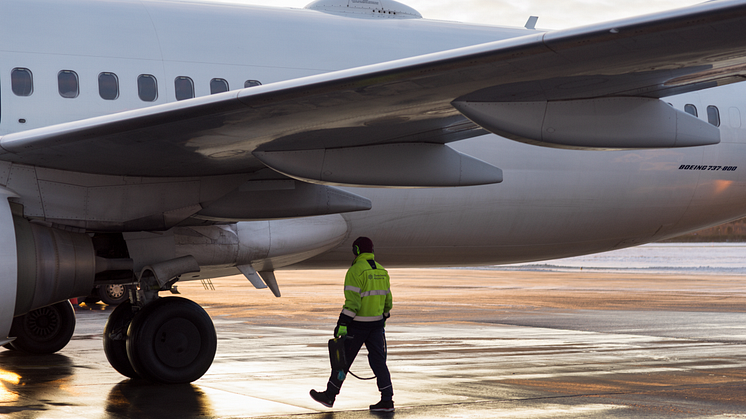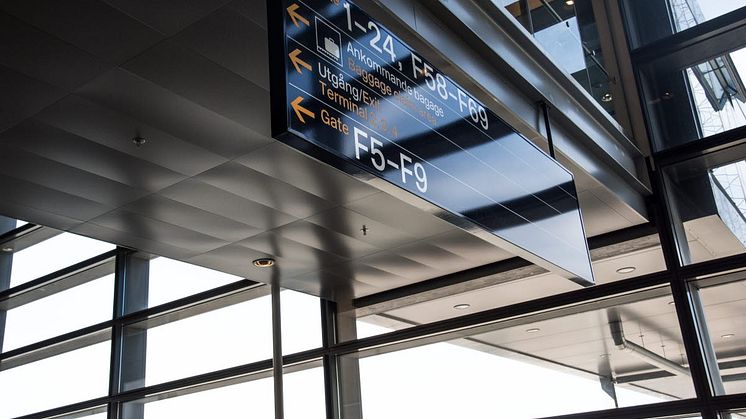
News -
Seven quick questions about air cargo for Ylva Arvidsson, Head of Swedavia’s air cargo operations
Ylva Arvidsson, Swedavia’s Director of Cargo, believes there is pent-up demand for air cargo and that air cargo can play an important role in the recovery of the aviation industry and of the world’s economies.
What role and what importance does air cargo have?
“Air cargo accounts for about 1 per cent of global transport. On the other hand, it accounts for about 35 per cent of the value of goods that are transported. The high-value goods that are flown include medicines, vaccines, medical devices, spare parts, components, perishable foods and goods that have a short product life cycle such as fashion clothing.”
How do air cargo operations work?
“One important aspect is the cargo loaded onto passenger aircraft, primarily on long-haul routes. The capacity that the airline still has once passengers have boarded and baggage has been loaded is for air cargo and increases the airline’s revenue. For the airline, this makes flying the route a profitable business."
“Examples of cargo companies that serve Swedavia’s airports are DHL Express, UPS, TNT, FedEx, Turkish Airlines Cargo and Korean Air Cargo. Their cargo is handled in cargo terminals at the airports.”
What effect is the coronavirus pandemic having, with the sharp decrease in air traffic?
“At present, almost all cargo capacity on passenger aircraft has been lost since service on many long-haul routes has been suspended due to Covid-19. We also have very few domestic flights, and access to capacity for domestic air cargo is very limited."
“Our customers that have only cargo flights continue to fly as before, and demand is high. There is a great need to quickly transport personal protective equipment and other medical equipment to our hospitals."
“We have a sharp decrease in the number of tonnes we handle at our airports – down 25 per cent – but the number of movements involving air cargo has increased by almost 9 per cent so far this year.”
Are the airlines taking any measures in order to handle more cargo instead of passengers?
“Yes, they are. Some airlines have adapted operations and take only cargo on passenger aircraft. One example is SAS/SAS Cargo, which flies a number of charter flights (passenger aircraft) from China to Stockholm Arlanda with medical protective equipment for Karolinska Hospital, which started in early May. They have also had one flight to the US with only cargo."
“Qatar Airways Cargo has had a few ad hoc cargo aircraft, but in May they have had one cargo flight a week at Landvetter Göteborg and two a week at Stockholm Arlanda. The flights at Arlanda will continue in June.”
What is cooperation like with authorities and other public services to ensure this essential cargo?
“At present, there is broad interest in cargo issues both among authorities, businesses and other public services. My colleagues at the airport and I help by providing information about how cargo works – for example, about bookings and what companies are involved – but also by serving as an intermediary for necessary contacts between different organisations to facilitate this cooperation. In tough times, it is nice to see that everyone is helping out.”
What does the future look like for cargo, disregarding Covid-19?
“For natural reasons, the importance of air cargo has been highlighted during the coronavirus pandemic. One effect of the coronavirus pandemic is that that companies will probably review their logistics practices and spread the risk by having suppliers in different markets and also find suppliers in their home market to reduce the risk of failed deliveries. Air cargo is one area where we see the economy turn early on, both a downturn and an upturn. Demand for air cargo always rebounds.”
We are now seeing signs of a recovery in the aviation market – what role does cargo play and what role will cargo play in the economic recovery?
“As soon as airlines are back up in the air, they can meet the demand for more cargo capacity. There is pent-up demand as countries are now opening up again. E-commerce has also increased during the pandemic and is generating air cargo. Cargo can become even more important for airlines in the economic start-up since they can offer more cargo capacity when passenger volume is initially lower than normal.”
For further information, Please contact Swedavia’s press office at tel. +46 (0)10-109 01 00 or press@swedavia.se.
The Swedavia Group owns, operates and develops ten airports across Sweden. Our role is to create the access Sweden needs to facilitate travel, business and meetings. Safe, satisfied passengers are the foundation of Swedavia’s business. Swedavia is a world leader in developing airports with the least possible environmental impact. The Group has annual revenue of more than 6.2 billion Swedish kronor and some 3,000 employees.





